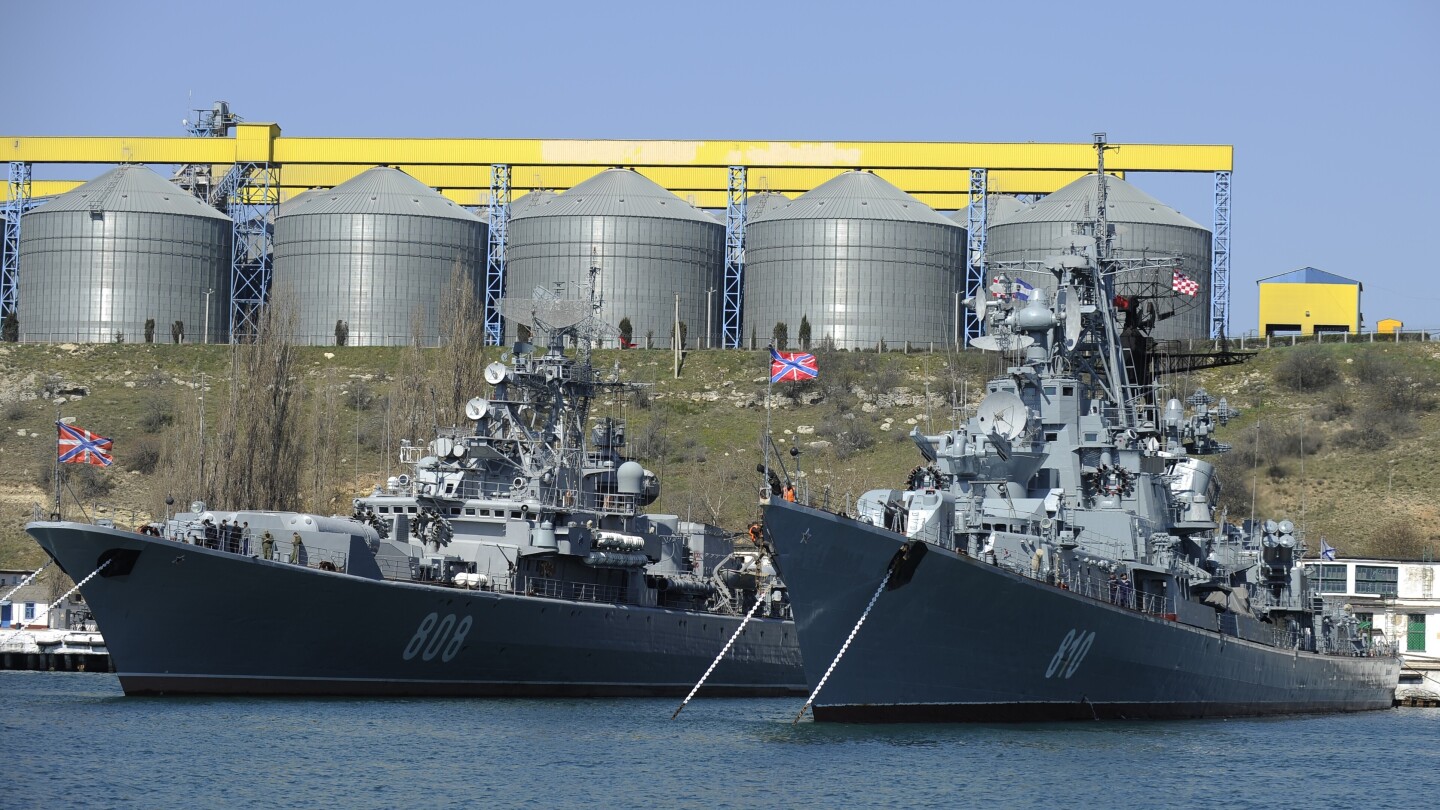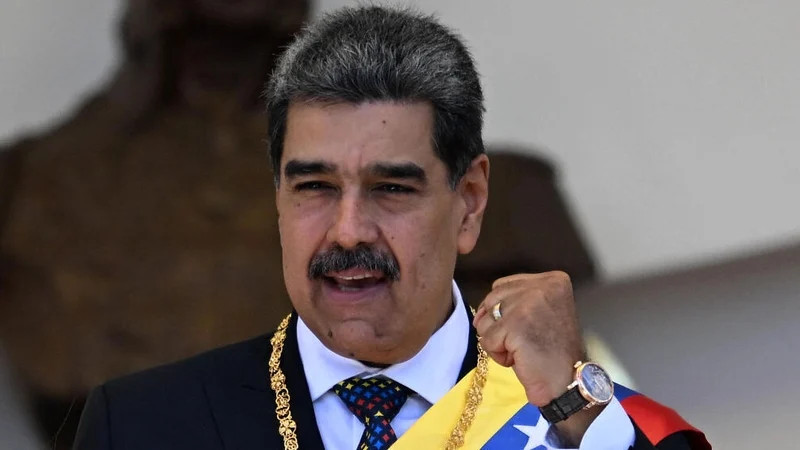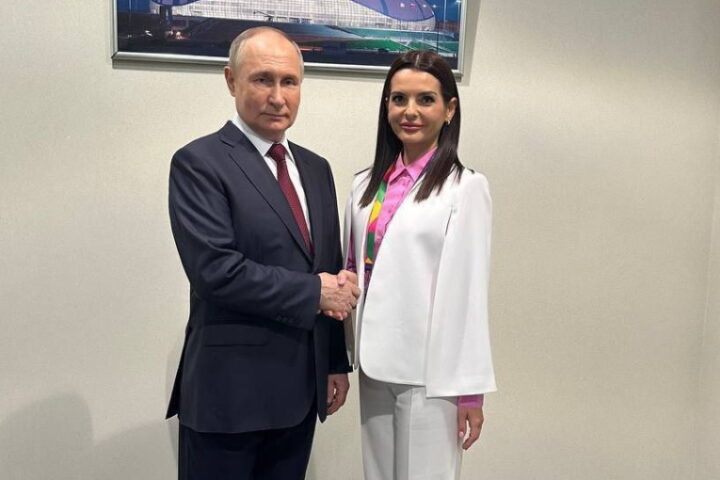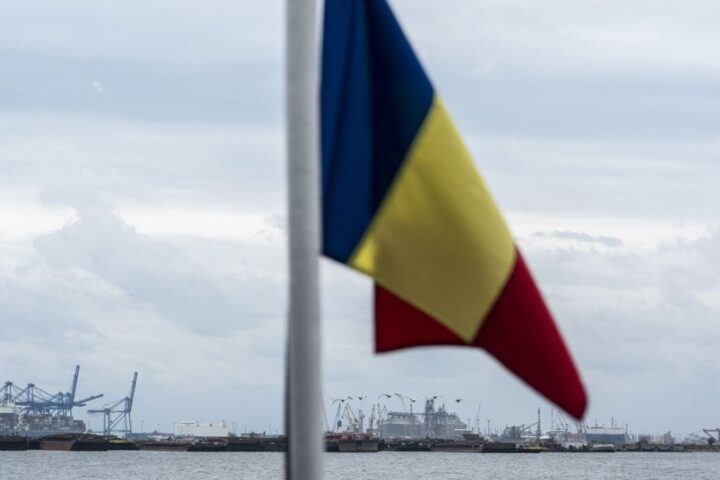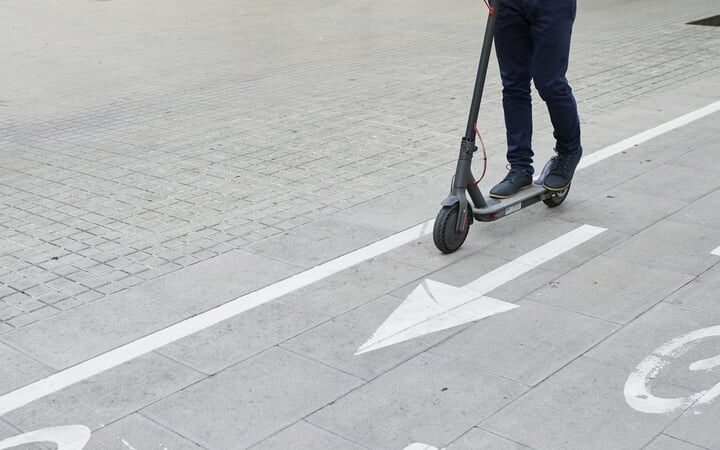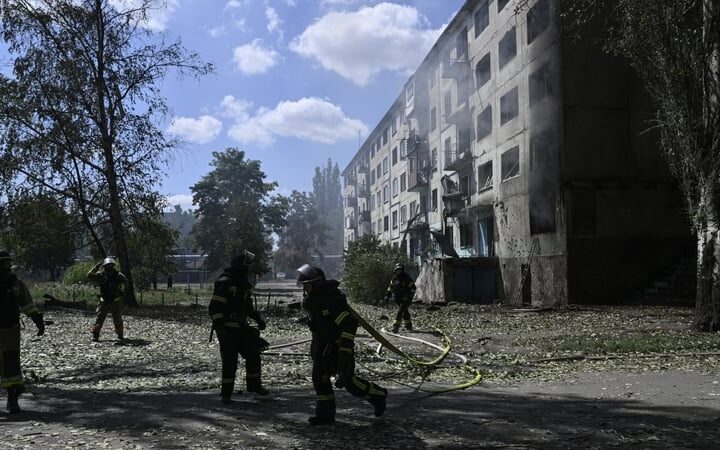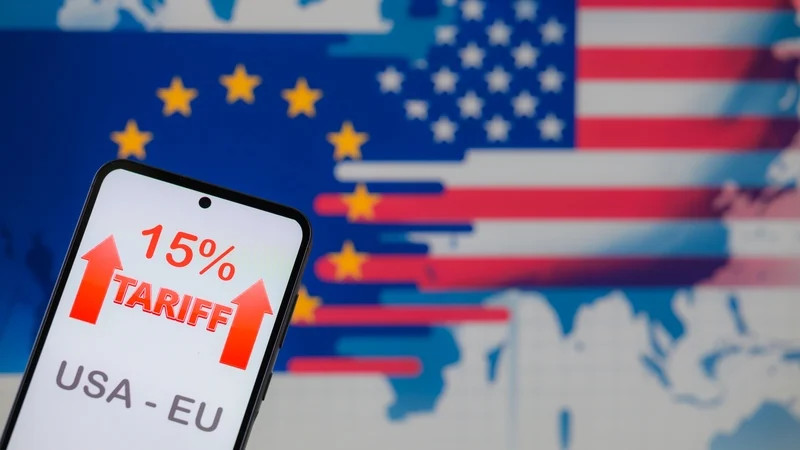The activities of the Russian fleet, in particular the tanker one, have traditionally been at the epicenter of many expert studies, but its individual components are still out of focus, and first of all this concerns the provision of these vessels with crews, that is, crewing activities.
The importance of this part of the Russian export machine is extraordinary, because any failures in the crew make tankers unseaworthy in terms of maritime safety, and by allowing sailors of mixed nationalities on board, the beneficiaries try to keep “their own citizens” on the captain’s bridge, and in general in the officer corps of these vessels.
We wrote these words in quotes, because significant shares of “Russian sailors” in the aggressor’s tanker fleet are residents of the occupied territories of Ukraine, primarily from the Crimean peninsula.
How they end up in the crews of the “shadow” fleet can be understood by studying the specifics of crewing activities on the occupied peninsula.
In general, hundreds of crewing companies operate under the control of the Russian Federation, and they are the most private and dispersed component of the entire system of Russian maritime business.
Moreover, many crewings are “interchangeable” in terms of sailors’ databases and collaboration with shipowners, but they differ in the degree of “reliability” and in terms of earning mechanisms: some have income from shipowners for more or less high-quality supply of labor, while others focus on the “shore share” from the sailors themselves.
In addition, crewings are either purely “subsidiary” structures of relatively powerful international maritime corporations, or separate businesses, but closely linked to specific shipowners.
Crimean crewing is potentially the most toxic partner for any shipowner. But everyone is used to turning a blind eye to the corresponding risks of a legal, political and regulatory nature, although they are broader even than the “Crimean” sanctions that have arisen in many jurisdictions (EU, USA, UK, Canada, Japan, etc.) since 2014, and have been intensifying since 2022, primarily in terms of attempts to control implementation.
Sanctions from the EU, the USA and other countries prohibit commercial activities in many sectors of the economy of the occupied Crimea, and in the case of crewing, this primarily concerns the prohibition of financial transactions that ensure its existence, an example of such restrictions is the EU Regulation 692/2014 of 2014, which was subsequently reflected and developed in the Union’s sanctions packages.
To earn money for crewing, as a rule, the shipowner pays “white” money for the company’s services, and “gray” money, that is, the actual employment fee is charged from the sailor, this money often becomes “black” in the form of a direct bribe from a candidate for a position, if the skills, experience, qualifications, behavior or health of the employed person knowingly do not match the vacancy.
It is easy to guess that shipowners of civilized countries who are not involved in other maritime sanctions packages are not eager to pay “white” money to Crimean crewing, while the circulation of money between shipowners subordinate to the Kremlin and employment offices on the occupied peninsula is constantly growing, and here the Crimean crewing themselves become violators of the sanctions packages imposed on specific shipowners, for example, the European Union’s Regulation 2025/932.
Therefore, the Crimean crewings exist either at the expense of the seafarers, which is a known and fundamental violation of the Maritime Labour Convention 2006, or they exist at the expense of the Russian maritime business, primarily the “shadow” tanker fleet. Such crewings take advantage of the fact that the Russian maritime trade unions, which have been operating illegally in Crimea since 2014, will not file complaints with the ILO about the violation of this 2006 convention by the crewings, and the Crimean seafarers themselves, under the conditions of occupation, will clearly not risk communicating with international institutions on their own.
However, even if we do not count the sanctions issues, it should be remembered that all maritime countries of the world do not recognize the attempted annexation of Crimea by Russia, referring to dozens of resolutions of the UN General Assembly, and therefore all documents issued on the occupied peninsula to crew members are illegal and invalid: fake “passports”, “certificates” of qualification, of education or training, etc.
The European Court of Human Rights has a similar position in interstate cases against Russia, where decisions were approved in June 2024 and July 2025. Therefore, Crimean sailors on board with the corresponding “Russian” papers are actually uncertified, and therefore vessels with such crew members on board automatically violate key maritime safety conventions, such as SOLAS and STCW. Let us recall that the challenges of Russian invasion for maritime security were also established by IMO resolution A.1183 (33) of 2023.
But you can’t envy the Crimean seafarers themselves: their contracts are covered by collective agreements or P&I insurance at best formally, and in the event of force majeure, such as injury, death, arbitrariness on board or commercial problems of the shipowner, such a seafarer or his family can only count on themselves, according to the slogan “there is no money, but you hold on”, which is a gross violation of the 2006 Convention.
In addition, any logistics with the delivery of a Crimean seafarer on board a ship and with his subsequent repatriation home from 2022 are not only determined by the illegal authorities of a number of countries, but, under current conditions, are a completely dangerous procedure purely physically.
In general, for Crimea, which is under Russian occupation, a common specific feature is that the “skeleton” of the local crews was formed before the occupation, and then the corresponding “commercial paths” for many became very different. The main concentration of relevant companies is traditionally observed in Kerch and Sevastopol, where up to thirty relevant structures were investigated, and initially attention will be paid mainly to the Sevastopol segment.
But an interesting “geographical exception” is the example of the Yalta crewing “Tenet Marine Company Ltd” (“Morskaya kompaniya “Tenet””), which has been operating since 1993, declares ties with Cypriot and Greek shipowners and promises employment in American, Belgian, Greek and Latvian companies.
Among other things, the “company’s fleet” includes such tankers as “City Elite” IMO number 9486908 (the tanker’s name was changed from November 2023 to “United Venture”), “Seliger” IMO number 9402263 under the Liberian flag, and “Mentor” IMO number 9340374, “Amorgos” IMO number 9371270, “Ecostory” IMO number 9175212 (the tanker’s name was changed from July 2023 to “Sundary”) and “Tropis Sea” IMO number 9216547 (tanker name changed from December 2024 to “Equality”) flying Greece flag.
The company does not advertise the offices in Greece and Cyprus declared on the website, but in the Russian “registers” it has the “tax code” 9103071225, and its declared “owner” is Olga Khvorost, and the “director” is Andrey Dukhno, the turnover for 2024 was declared at 2.6 million rubles.
Among the Crimean crewing companies, the Simferopol “daughter” of the global corporation “MIT-Ocean LTD” deserves attention, namely “MIT-Ocean Maritime Services LTD”, which was registered with the occupiers in Simferopol under the names of Mikhail Turkov, Anatoly Eremin and Olga Bobrova, with “tax code” 9102223524.
Some Russian structures, such as the “Kaliningrad Shipping Company”, tried to “enter” the occupied peninsula after 2014, but did not have much success.
Other crewing companies, primarily located in Sevastopol and Kerch, continue to operate under Russian control, but ocean-going tankers make up an insignificant share of their activities; traditionally, these structures are aimed at supplying crews to fishing vessels or to the fleet of small tonnage and the most disreputable reputation.
As examples of still active commerce of this kind, it is worth mentioning the Sevastopol “Maritime Agency VV” (“Morskoye agenstvo VV”) of Oleksandr Velichko, with “tax code” 20115921280, and “Transcontract Ship Management” of Gennady Vasilyev, “tax code” 9204024920, as well as “Maritime Agency Titarenko” (“Morskoye agenstvo Titarenko”) of Oksana Titarenko, “code” 9201001089.

The latter structure is notable primarily for the fact that since 2019 it has “changed its legal address” from Sevastopol to the Russian Yeysk town, but at the same time it continues to actively work in the occupied city.
This is exactly the “Sevastopol Maritime Club” (“Sevastopolsky morskoy klub”), tax number” 9204510165, with the nominal Alexander Romanenko and “director” Olena Zlobina, the Sevastopol “Dalmarin Personnel Agency” (“Kadrovoye agenstvo Dalmarin”), “tax number” 20117921332, with the “founder” Sergey Izotov and “director” Yuri Khlibov and “Atlantic Crewing Company” (“Kompaniya “Atlantika Krewing””), “tax number” 20115921261, with co-founders Viktor Mishurovsky, Andriy Rusin and Svetlana Zubkova.
In this dimension, and beyond the issue of the “shadow” fleet, crewings that still remain relatively active “doubles” deserve special attention, this is the occupation Sevastopol clone of the crewing “Stellmar”, “tax code” 9201505992, with founders Vsevolod Chernienko and Dmitry Ovchinnikov, which is registered in Kherson with the same denominations, Ukrainian tax code 37718388.
The crewing company “SeaTraffic” is also registered in Kherson, Ukrainian tax code 20712317 with the Andriy Babiychuk as nominal, and at the same time until September 2024 he was the “founder” of its Sevastopol “double”, “Sytrefik” with the “tax code” 9204509353, and the “co-founders” of which were later declared to be Natalia Novozheeva and Oleksandr Bychkov.
But another Sevastopol crewing company, “Maritime Agency Tramontana” (“Morskoye agenstvo Tramontana”), “tax code” 9201000688, declared under the name Olga Kaganovich, with “director” Sergei Panasenko much more deeply involved in the activities of the “shadow” fleet.
This structure is notable for having its own “training center”, which, among other things, offers “naval training for crews of civilian vessels” and “crew training courses in safe sailing skills in wartime”, as well as assistance in obtaining an “Aramco charter certificate”.

The relevant document is required by the Saudi Arabian authorities for workers on oil production platforms, and therefore the aforementioned “Tramontana” clearly supplies sailors and workers to oil production support vessels (offshore fleet) in the Red Sea and the Gulf.

But these businessmen do not forget about “ordinary” tankers, since among the “fresh vacancies” in their catalog you can find vacancies for masters and first mates for tankers with salaries of 12 and 9 thousand dollars, respectively. It is obvious that this crew is in “good standing” with the occupation “administration”, since in 2021 it received “assistance” from the “governmental Sevastopol fund for support of entrepreneurship”.
But it is unlikely that Olga Kaganovich is a real beneficiary of “Tramontana”, given that she is listed as a signatory in a Sevastopol private enterprise with the same name.

The thing is that the “full namesake” of this “Red Sea princess” is actually a translator and restorer of books and documents, who over the past two decades has “marked herself” in Sevastopol, even before the Russian occupation of city began in 2014, precisely in the museum business at the “35th Coastal Battery” and in Chersoneses Museum.
However, the logic of the real owners of “Tramontana” is clearly visible here: a translator who can always creatively “restore” any document of a shipowner or sailor is a clearly rare commodity. But, judging by the real “labor biography” of Kaganovich, most likely she was put on “Tramontana” with a nominal value precisely from the clan of Oleksiy and Mykhailo Chalykh, “patrons” of the same “museum 35th battery”.
This is exactly how the Sevastopol “Seamen’s Training Centre” (STC or “Tsentr podhotovki moryakov”) sends crews to tankers, “tax code” 9201015349, registered to Sergei Matus, with “director” Stanislav Ren, although, in addition to the 7 oil and chemical tankers with “Russian-speaking crews” declared on their website, this structure boasts 32 bulk carriers of “Chinese construction”. This structure also received “state aid” from the mentioned “Sevastopol fund for support of entrepreneurship”.

It should be noted that until 2014, this structure called itself a “joint Ukrainian-Greek crewing company”, and in the Ukrainian register with code 22286617, it has the same Stanislav Ren’ as a signatory, and the Greek Panagiotis Costas Laskaridis as its cofounder, also as his company “Laskaridis Shipping Co. Ltd.” In 2015, the same Ren’ was presented in the media as a crew member for the refrigerator ship “Frio Athens” (IMO 8710340) of the same Greek company, where twenty Crimean sailors were stranded due to a break in the Pacific Ocean.

It is noteworthy that under the conditions of Russian occupation of Crimea, Ren’ was simultaneously declared as a director in two Novorossiysk companies: “Maritime Agency “Nerei”” (“Morskoye agenstvo “Nerei””), code 2315214553 and “Maritime Agency “Proteas”” (“Morskoye agenstvo “Proteas””), code 2315982026, where he is also a co-founder, together with the Panamanian company “Naval Commander S.A.”, code 332931.

At the same time, the Novorossiysk “Proteas”, as it follows from its website, supplies crews for a whole group of tankers, including “Bluefin” IMO number 9551868, “Bonito” IMO number 9475399, “Centaurus” IMO number 9400978, “China Spirit” IMO number 9541289, “Fortune” IMO number 9379325, “Intrepid” IMO number 9402859, “Jason” IMO number 9377808, “Marlin” IMO number 9453638, “Pacific Trader” IMO number 9403839, “Sealion” IMO number 9377810, “Saronic Bay” IMO number 9462689 under the flag of Liberia and “Baltic Prosperity” IMO number 9576820 flying the flag of Cyprus.


As it follows from the tanker operator’s emails listed on the crewing website, it is the Greek company “Alison Management Corporation” located in Athens. All tankers are registered to various formal Greek shipowners, but their manager is mostly the Greek company “Lavinia Corp”, clearly owned by the same Panos Laskaridis, who founded the Sevastopol “Seafarer Training Center” before the Russian occupation of city.

And the super-influential Laskaridis brothers’ family in Greece controls, in addition to dozens of ships, the two most powerful historical hotels in Athens, a number of casinos, and they even have a stake in “Aegean Airlines”. Panos Laskaridis, among other things, was the chairman of the European Community Shipowners’ Association and often participated in the events of the International Maritime Organization.
Regarding the aforementioned Panamanian company “Naval Commander S.A.”, we add that its belonging to the Laskaridis empire is emphasized by the fact that it acted as the formal owner of individual ships operated by the aforementioned “Lavinia Corp”, such as the bulk carrier “Frio Pacific” with IMO number 8324244.
It remains to add that Sergey Matus is a resident of Kaliningrad and, among other things, is a minority founder of the local crewing company “Olympia”, which belongs to another Panamanian offshore, “National Pioneer S.A.”.
Some Kerch crewings are also closely connected with the tanker fleet. As an example, it is worth mentioning the newly structure “Sydyma”, formed three years ago, with “tax code 9111029114 and with the Crimean nominal Alexander Manisov.


This crewing, which received a “license” from the aggressor in 2023, is recruiting officers for various vessels, but at the same time declares a connection with 46 tankers, without giving their names. It is noteworthy that the payment to sailors for these vacancies is promised in two components, in dollars and in Russian rubles in dollar equivalent.
However, from the characteristics given in the vacancies of “Sydyma” for July 2025, it was possible to find out that we are talking, among other things, about the tankers “Delta Ocean”, IMO number 9408475 and “Eleni”, IMO number 9432062 under the flag of Liberia, which was heading to the Indian port of Paradip at that time, where in July there was most likely a relevant crew change.
The same “Eleni” transported oil from Novorossiysk in April of this year, its manager is “Dynacom Tankers Management”, and the shipowner is “Mycenae Shipmanagers Co”, both Greek companies registered in Athens.

Another Kerch crewing company, “Top Crew”, with “tax number” 9111006156, has such a nominal as the local graduate of the Kerch State Marine Technological University in 2008, Oleksandr Kastramytsky. This structure promised employment in the amount of hundreds of vacancies specifically for tankers, in the amount of 109 pieces, in the summer of 2025, without naming these vessels.


It was possible to establish a high probability that the sanctioned vessel “Arlan” with IMO number 9227443 (EU and Great Britain sanctions from May 2025, ones from May 2025, Canada and Switzerland sanctions from June 2025) belongs to them, which in June entered the Omani port of Duqm, where the crew was replaced, and the Kerch crewing was looking for an ordinary sailor for it with a salary of up to 2 thousand dollars.
It is noteworthy that since 2017, a Krasnodar clone of the aforementioned crewing company has been established on Kastramytsky, namely the company “Top Croo”, number 2311249322.
Similarly, the Kerch-based “Maritime Agency “Intermarine”” (“Morskoye agenstvo “Intermarine””), “tax code” 9111012343, with the nominal Irina Mamchenko and the “director” Maxim Shalikov, offers work on tankers. In 2024, these businessmen “reported” a profit of 5.2 million rubles, and in August 2022 they enjoyed “aid” from the infamous “governmental Crimean state fund for entrepreneurship support”.

Among other things, there were vacancies on the network from “Intermarine Kerch”, for example, for an electrical engineer on the tanker “Maverick” with IMO number 9321562 under the flag of Sao Tome and Principe, with a salary of up to 7.8 thousand dollars. This tanker exported oil from Russian ports in February 2025 and has the manager and shipowner company “Smartwaves Ship FZE” from the UAE.
The July vacancy from “Intermarine Kerch” for a second mechanic with a salary of 11 thousand dollars on the tanker “Aditya” with IMO number 9323314 under the flag of Gabon, which was at that time in Turkey, is also noticeable. And earlier this vessel was called “Ane” under the flag of Liberia, the local owner and shipowner “HS ANE LTD”, and in September 2022 it exported Russian oil from Tuapse in the same way.
It is noteworthy that previously the representative of the Kerch “Intermarine” was a certain Sergey Kokoz, who received a “tax code” in December 2014 in Krasnodar and was characterized on maritime forums as a “concrete scumbag”.
Interestingly, the crews who are the “namesakes” of the Kerch “Intermarine” are currently in Novorossiysk, code 2315086527 with the nominal name Alexander Vaylov.
Other Kerch crewing companies are not so open about tanker vacancies, but the “Noss Krym” structure with the name Natalia Korotkova and “tax number” 20115821306 is also worth noting. This structure showed a turnover of almost a million rubles for 2024, but the most interesting thing is that the contact email of the “Noss Krym” crewing company showed an announcement from this “firm” and Korotkova in 2019 about the “purchase for export” of diesel fuel, kerosene and other petroleum products, in particular on an “annual contract” and “in large volumes.”

Also noteworthy is the activity of the Kerch crewing company “Transoptimal”, with the nominal Andriy Gubar and the “tax code” 9111002183. Before the occupation, the activity of the company “Transoptimal-Kerch”, Ukrainian tax code 31252529 of Sergey Zhikharev, was recorded in Kerch, and now Gubar is also the nominal in the crewing company “Transoptimal-Taman” from Temryuk, code 2352056626.
At the same time, the previous “founder” of the Kerch “Transoptimal” is Vladimir Matskevich, who at the same time emerged in Russian structures, both the aforementioned Temryuk company, and “Transoptimal-Astrakhan”, “Transoptimal-Rostov”, “Transoptimal-Service” and “Transoptimal SPb”, the latter of which reported a profit of 535 million rubles in 2024.
It is also worth mentioning the Kerch crewing company “Stella Maris”, “tax number” 9111007897, with the names Anastasia and Anatoly Levkovich, which appeared in the city a year before the occupation and offered work on “river-sea” vessels and on Russian fishing vessels. Now this commercially active structure offers, among other things, “agency in the ports of Kerch” and “agency during the passage of the Kerch-Yenikale Canal in transit”, which does not exclude the involvement of the aggressor in oil transportation.
This structure had almost “full namesakes”, namely two Kerch crewing companies of the same name “Stella Marin”, “tax numbers” of the occupiers 9111005480 and 9111001817, both with the names Oleksiy and Galina Sukhovsky, which were allegedly “liquidated” in 2017.
Another Kerch crewing company, “Lora and Company” (“Lora i Kompaniya”), with the names of Mikhail and Alexandra Astakhov and the “tax number” 9111003349, is notable for promising sailors “employment in the Baltic countries” and having an “indicated” revenue for 2024 of 2.5 million rubles.
Finally, let’s mention the Sevastopol crewing company “Sea Alliance” with the “tax code” 9204016990 and the name Valentin Plavelskyi, which was “formed by merging” the Kerch structure of the same name with the “code” 9111007865 and the structure “Maritime Agency Bermudas” (“Morskoye agenstvo “Bermudas””) of the same Plavelskyi.
Until 2014, this figure was the beneficiary of the Mariupol-based crewing company “Maritime Agency A.T.T. – Bermudas” (“Morskoye agenstvo “A.T.T. – Bermudas””), Ukrainian tax code 30276580, which was later the “founder” of the Kerch-based “Sea Alliance” in Russian registers. This figure, who has been involved in crewing since 1993, was, among other things, distinguished before 2022 in general criminal scandals regarding the Mariupol hotel complex “Volna”.
Here it is noteworthy that in 2024 another clone of “Sea Alliance” appeared, already in occupied Mariupol, with the names of Valentin Plavelsky and his son Vladislav, and with the “code” 9310007450 in the Russian registers.
So, some conclusions can be drawn from the results of our investigation.
Firstly, the Crimean crewings identified by us and the companies affiliated with them, the vessels and personnel associated with them contribute to the aggression of the Russian Federation and are still not under sanctions.
The Crimean crewings undoubtedly play a significant role in providing personnel for the “shadow” fleet, which is engaged in the transportation of Russian oil, and there are numerous facts of employment of ship crew members through them.
Secondly, the connections of the beneficiaries and management of these structures with European shipowners, inherited before 2014, still contribute to their interaction with other vessels, including tankers, as well as with the oil production industry of third countries, and this provides the Russian Federation with enormous opportunities to influence any oil transportation “from within” for the benefit of its own beneficiaries.
Thirdly, shipowners should stop employing Crimean sailors with “Russian documents”, in particular through the described crewing. Also Crimean crewings provide the Kremlin with a measure of payment of “taxes” that go to finance the war, replenishing the Russian military budget.
Those crewings participate in scams with “Russian maritime documents”, contribute to the militarization of Crimean sailors, so the need arise for a detailed study of the activities of such companies in the context of the expanding the sanctions policy against them.
Fourthly, the Crimean crewing is actually subordinate to the general maritime strategy of the Russian Federation, which is undoubtedly aimed at domination, the construction of naval logistics and the fight against sanctions at the expense of maritime transport.
It is necessary to understand that the Crimean crewing is a kind of driver of the war, the functioning of the Russian tanker fleet, as well as the activities of the Russian occupation regime in Crimea. This is another challenge for the international community and, of course, a global threat, which, according to the “laws of the genre”, must be localized.
